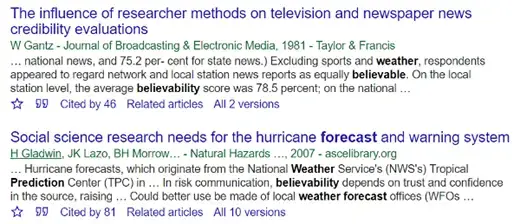
When do you stop searching the literature? This article provides three tips to help you decide whether to go on searching the literature or not on your research topic.
Here are three tips on when to stop searching the literature.
Table of Contents
Three Tips on When to Stop Searching the Literature
1. Stop searching the literature when literature contents are repetitive
As it is common nowadays to use online databases, you may stop searching the literature once the same articles appear even when you vary your keywords on a particular topic. You can be confident that whatever you have missed may not matter that much.
Examples of online databases to explore include the following: Google Scholar, Scopus, Directory of Open Access Journals, ProQuest, African Journals Online, arXiv, BioOne, among others. Wikipedia lists an extensive collection of academic databases for free or via subscription.
My personal experience in using Google Scholar showed relevant articles for my chosen topic in the first 20-30 titles or links. Reading the meta description for each title helps me decide whether to read the abstract or not. The meta description is that snippet of information found just below the title of the article.
Two examples of meta description are given below.

You can exhaust your literature search by looking at the bibliographic entries of articles. That is, if you can access the whole paper.
Open access articles on your research paper topic may be available. While paid subscription journals are still considered suitable reference materials, open access articles are gaining ground. The European Commission promotes open access publishing gains to better and efficient science as well as innovation.
2. Consider your submission deadline
To be pragmatic about it, you need to deliver the goods within a specified period. If you are given a month or even a few weeks to search the literature, you do not have the luxury of time to write an extensive literature review.
If you are doing your review within a semester in the process of writing your thesis, then, by all means, keep to that schedule. Your “free time” may be windows of one to two hours of reading in a day as you comply with the other requirements of the course.

It would help if you had adequate time to synthesize the literature. Come up with your conceptual framework within a reasonable period.
After reading about 20-30 references, you may likely have already conceptualized something significant. Keep to your deadline. Planning a strategy on how to do things on time can help you achieve your task.
Finding a meta-analysis, for example, can save you a lot of time. A meta-analysis systematically assesses the results of previous research to derive conclusions about that body of research. In effect, it brings relevant literature together in one study.
Thus, a synthesis facilitates literature search. Just update or enhance the composition to come up with your conclusions or synthesis.
3. Gap in knowledge has been found
Stop searching the literature if you have found the gap in knowledge in the topic that you are exploring. A research gap pertains to areas of study that have not been explored.
Minimal studies have been done so far to understand the phenomenon. It takes a while to discern such a gap, so you need to be patient in reading the literature and note down the significant findings.
Knowing when to stop searching the literature depends in part on your familiarity with the topic at hand. Hence, it pays to study something that you already have an established level of familiarity as you go through your academic pursuit. That is the mark of being a specialist in your field.
©2020 January 25 P. A. Regoniel | Updated 2024 January 11
